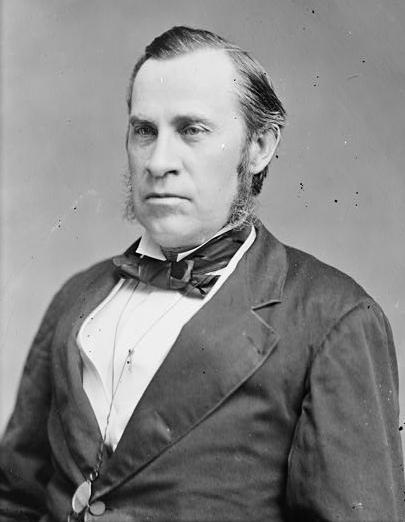
Dorchester Illustration 2706 Benjamin W. Harris
Benjamin Winslow Harris he served in the Massachusetts House in 1857 and the Massachusetts Senate in 1858. He lived in Dorchester, from 1869 to 1872.
In 1869, he presented an argument against the annexation of Dorchester to Boston in hearings of the Joint Committee on Towns in the Massachusetts Legislature. He tried to refute the arguments of those in favor of annexation, in part, by alleging improper conduct in a meeting held in Dorchester to consider the petition for annexation. When the Act for Annexation came out of the legislature, annexation was recommended, and a date in June 1869 was set for Dorchester and Boston to vote on the issue. The vote was in favor, and Dorchester became part of Boston on Jan. 1, 1870.
Excerpts from Harris’s comments follow.
“It is said that there are 860 names on the petition from the town of Dorchester…. how were the names obtained and what influenced the petition?… A hired messenger traveled through the town with a petition praying for the annexation of the whole of Dorchester; and he got 829 names, 233 of which are neither voters, nor, so far as we know, residents…This was a canvass…in which the person canvassing, says, ‘We don’t want Dorchester divided; but if they are going to take a portion, let them take the whole!’ ”
“They say there were 544 voters in favor of action to 6 opposed…when you count upon 544 voters in that meeting in favor of annexation, you mistake.. The town of Dorchester has not had a full discussion of this matter.
“It did seem to me that Mr. Upham, who was last year the chairman of the committee chosen to oppose annexation, but who happens to be, this year, a convert to annexation, — it did seem to me a little strange that under his management, fair play could not have been a little better secured…. where a majority of the committee opposed to annexation, of which he was chairman, had a written report ready to present to the meeting, Mr. Upham did not do quite the fair thing reading a report signed by himself as chairman, and having it acted upon before the majority of the committee could get a chance to make it know that they had a report ready, and he the chairman of the meeting too… he did not give the opponents of this measure quite a fair chance.
“But how was that meeting constituted? Mr. Putnam, who runs a large nail factory, hires two four-horse wagons, and hires 42 voters to and vote for annexation…. He had 42 voters in his employ who would vote in favor of annexation, and he said, ‘Boy, I will pay you your wages, nothing shall be deducted from your day’s labor, and I will pay your transportation up and back, if you will go and vote for annexation;’ and they went.” B. W. Harris. The Annexation Question. Closing Argument of B. W. Harris, Esq. (Boston, 1869)
